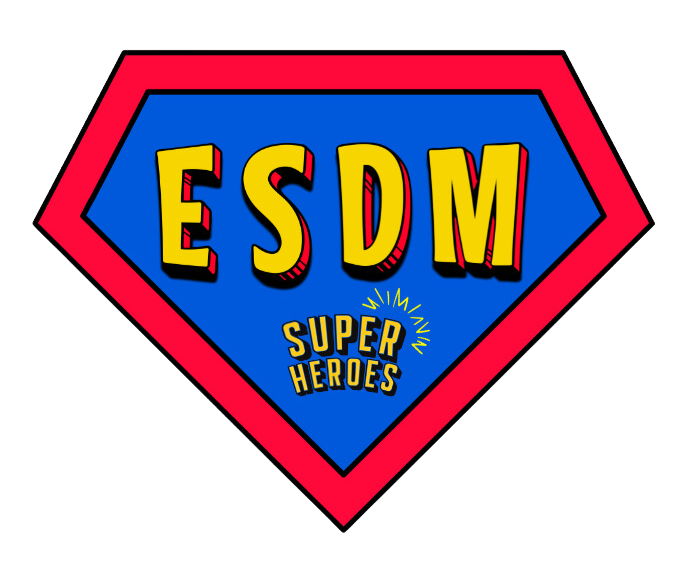Frequently Asked Questions
〰️
Frequently Asked Questions 〰️

-
Families from ESDM Superheroes can utilise their National Disability Insurance Scheme (NDIS) plan for our programs and services if the plan is either:
Self-Managed
Third-Party Plan Managed
Unfortunately, if your NDIS plan is NDIA-managed, your funds cannot be used at ESDM Superheroes.
For more information regarding your funding arrangements, please visit this Link.
-
ESDM Superheroes complies with the cost of services recommended as per the NDIS Pricing Arrangements and Price Limits 2023-2024. To download a copy of the NDIS Price Guide 2023-2024, please click on the following link: NDIS price guidelines.
To receive a direct quote for an ESDM session or Parent Coaching from us, simply fill in your details in our contact page and we will get back to you asap. No questions asked.
-
ESDM Superheroes offer mobile therapy services, providing Early Start Denver Model (ESDM) therapy either in-home or at preschool, creating a natural environment conducive to learning and development.
P-ESDM Parent Coaching is delivered over 12 weeks online, an initial meet and greet (2 hours), then 11 sessions at 1 hour per week.
-
The initial Early Start Denver Model (ESDM) consultation sessions will last for 1.5 hours, depending on the age of the child. All materials required for the assessment will be provided, including the ESDM curriculum checklist, age-appropriate toys, and cognitive materials.
During the consultation session, the therapist will engage in 1:1 interaction with the child to assess all developmental domains. The therapist will also observe parent-child interaction for a short period.
Parents are required to be present for the entirety of the session as they will need to complete the ESDM parent questionnaire to accurately assess the child's level of development.
Following the ESDM assessment, parents will receive an initial consultation report of the results from the ESDM assessment, ESDM learning goals, quotes, recommendations. This report can be used for NDIS funding purposes.
Parents will receive detailed information on therapy fees, and recommendations for ongoing therapy.
Please note that the service agreement must be signed before the initial consultation session begins.
-
-
The Early Start Denver Model (ESDM) has been supported by various research studies that demonstrate its effectiveness in improving developmental outcomes for young children with autism spectrum disorder (ASD). Below is a summary of key evidence supporting ESDM therapy:
Key Studies and Findings:
1. Randomised Controlled Trials (RCTs)
-Dawson et al. (2010):This seminal study is one of the most cited RCTs evaluating the efficacy of ESDM. The study involved 48 children with ASD aged 18-30 months who were randomly assigned to receive either ESDM therapy or community-based interventions for two years. Results showed that children in the ESDM group had significant improvements in IQ, language, and adaptive behaviour compared to the control group. Additionally, children in the ESDM group exhibited fewer autism symptoms.
Reference-Dawson, G., et al. (2010). Randomised, controlled trial of an intervention for toddlers with autism: the Early Start Denver Model. Paediatrics, 125(1), e17-e23.
2. Longitudinal Studies:
Rogers et al. (2012):This follow-up study examined the long-term effects of ESDM on children who had participated in the initial RCT. It found that the gains made during the intervention period were maintained, and some children continued to show improvements even after the intervention ended.
Reference:Rogers, S. J., et al. (2012). Early Start Denver Model curriculum checklist for young children with autism. University of Colorado Denver.
3. Comparative Studies:
-Estes et al. (2015): This study compared the outcomes of children who received ESDM therapy with those who received other early intervention services in community settings. The results indicated that children in the ESDM group showed greater improvements in adaptive behaviour, communication, and social skills.
Reference:Estes, A., et al. (2015). The impact of parent-delivered intervention on parents of very young children with autism. Journal of Autism and Developmental Disorders, 45(3), 1415-1428.
4. Meta-Analyses and Systematic Reviews:
Reichow et al. (2012): This meta-analysis reviewed several studies on early intensive behavioural interventions (EIBI), including ESDM, and concluded that such interventions, including ESDM, are effective in improving cognitive, language, and adaptive behaviour in young children with ASD.
Reference:Reichow, B., et al. (2012). Early intensive behavioural intervention (EIBI) for young children with autism spectrum disorders (ASD). Cochrane Database of Systematic Reviews.
5. Neuroimaging Studies:
- Dawson et al. (2012): In a study examining the neural effects of ESDM, researchers used electroencephalography (EEG) to measure brain activity in children with ASD before and after receiving ESDM therapy. They found that children who received ESDM showed patterns of brain activity more similar to typically developing children, suggesting that ESDM can positively influence brain development.
- Reference: Dawson, G., et al. (2012). Early behavioural intervention is associated with normalised brain activity in young children with autism. Journal of the American Academy of Child & Adolescent Psychiatry, 51(11), 1150-1159.
Summary of Findings:
The body of evidence supporting ESDM therapy highlights several key outcomes:
- Cognitive Improvements: Increased IQ scores and cognitive functioning.
- Language Development: Enhanced expressive and receptive language abilities.
- Adaptive Behaviour: Better performance in daily living skills and adaptive behaviours.
- Reduction in Autism Symptoms: Decreased severity of core autism symptoms.
- Neural Changes: Positive changes in brain activity patterns, indicating developmental progress.
Overall, ESDM is a well-supported early intervention approach that has shown significant benefits for young children with ASD across multiple domains of development.
